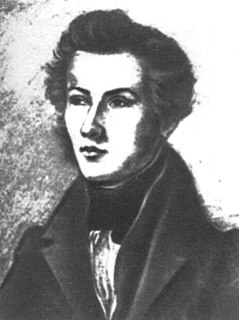A Quote by Allen W. Wood
I don't think Kant's approach to religion is any longer viable in its original form. But that does not mean it is simply wrong or that we cannot learn from it.
Related Quotes
Kant's treatments of rational theology and metaphysics were aimed primarily at theoretical questions. His attitude toward the pseudo-sciences of "special metaphysics" in Wolff and Baumgarten was always double-edged. He did see them as pseudo-sciences but also valued their doctrinal value and especially their regulative value for the empirical sciences. Like his views about religion, I don't think any of this is any longer viable in its original form.
I haven't come across any recent new ideas in film that strike me as being particularly important and that have to do with form. I think that a preoccupation with originality of form is more or less a fruitless thing. A truly original person with a truly original mind will not be able to function in the old form and will simply do something different. Others had much better think of the form as being some sort of classical tradition and try to work within it.
Due to his own original special nature, the Jew cannot possess a religious institution, if for no other reason because he lacks idealism in any form, and hence belief in a hereafter is absolutely foreign to him. And a religion in the Aryan sense cannot be imagined which lacks the conviction of survival after death in some form. Indeed, the Talmud is not a book to prepare a man for the hereafter, but only for a practical and profitable life in this world.
You are wrong if you think you cannot live without love. I cannot live without it. I do not mean that I go into a decline, develop odd symptoms, became a caricature. I mean that I cannot live well without it. I cannot think or act or speak or write or even dream with any kind of energy in the absence of love. I feel excluded from the living world. I become cold, fish-like, immobile. I implode.
My claim is simply that the literary approach is one necessary way to read and interpret the Bible, an approach that has been unjustifiably neglected. Despite that neglect, the literary approach builds at every turn on what biblical scholars have done to recover the original, intended meaning of the biblical text.
There are reviews that are clearly wrong. Dr. Johnson's famous Life of Savage, he's clearly wrong about the value of Savage. But it's one of the great works in English literature. You can learn more about the artistic expression and what the poet does and how to write about art from that than any number of guys who are terrible writers, who have no original ideas, but who say yes, "Hamlet" is a wonderful play. It's a meaningless statement.
Our approach to existential risks cannot be one of trial-and-error. There is no opportunity to learn from errors. The reactive approach - see what happens, limit damages, and learn from experience - is unworkable. Rather, we must take a proactive approach. This requires foresight to anticipate new types of threats and a willingness to take decisive preventive action and to bear the costs (moral and economic) of such actions.
Many people like to think that their moral or political enemies are not just wicked or wrong - as if that were not enough - but stupid or idiotic too. We tend to find this attitude too in the contemporary religion debate. It might console those on each side of the debate to think of their opponents in these terms, but if we want to make real progress in understanding what is going on here, this approach cannot help.
To draw does not simply mean to reproduce contours; the drawing does not simply consist in the idea: the drawing is even the expression, the interior form, the plan, the model. Look what remains after that! The drawing is three fourths and a half of what constitutes painting. If I had to put a sign over my door to the atelier, I would write: School of drawing, and I'm certain that I would create painters.
Popular religion since the time of Kant and Fichte has gone in a direction they tried to prevent and that has been disastrous for the humanity both of believers and of the rest of us. Look at the role of religion in Republican presidential primaries if you need any confirmation of this last statement.
































